DOT Consortiums, DOT Policies, DOT Drug Testing & DOT Trainings
Many companies in the United States are subject to regulations by the Department of Transportation (DOT), which mandates drug and alcohol testing.
Each mode of transportation has specific regulations to maintain compliance, we ensure compliance across all modes.
Our DOT Services include: Drug Testing, Testing Policy Development, Training, and Consultations.
FMCSA | Federal Motor Carrier Safety Administration
We ensure DOT Compliance through our comprehensive understanding of FMCSA requirements and regulations.
GENERAL
The Clearinghouse DOT, managed by the Federal Motor Carrier Safety Administration (FMCSA), is a database that records violations related to the U.S. Department of Transportation's (DOT) controlled substances and alcohol testing program for Commercial Driver’s License (CDL) holders. This database is known as the FMCSA Commercial Driver’s License Drug and Alcohol Clearinghouse (Clearinghouse).
Only employers with drivers who are subject to the licensing requirements outlined in FMCSA Part 383 and the drug and alcohol testing regulations specified in Part 382 are authorized to query or submit information to the Clearinghouse.
EMPLOYER REQUIREMENTS
- Employers are mandated to check the Clearinghouse annually for each driver they employ.
- Employers must verify current and prospective drivers for drug and alcohol violations before permitting them to operate on public roads.
- Employers are required to report any refusals to undergo testing to the Clearinghouse.
- Employers must submit the results of breath alcohol tests to the Clearinghouse.
CLEARINGHOUSE DOT REGULATIONS
The Clearinghouse regulations will mandate that employers both query and report information regarding CDL drivers. Once the Clearinghouse is operational, employers must report specified violations of the DOT drug and alcohol testing program by their current and prospective CDL drivers. Additionally, all employers of CDL drivers will need to perform pre-employment electronic queries to check if potential hires have unresolved drug or alcohol violations that would prevent them from performing safety-sensitive duties. Employers will also be required to conduct annual queries of the Clearinghouse to determine if current employees have incurred any drug or alcohol violations while working for another employer.
MEDICAL REVIEW OFFICER (MRO)
Medical Review Officers (MROs) will be obligated to report refusals and positive test results, including any modifications that change a result from negative to positive or vice versa. Within two business days of determining or verifying a DOT-approved drug test, an MRO must submit the following driver information to the Clearinghouse:
- Verified positive drug test results
- Refusal-to-test determinations due to an employee’s inability to provide a sufficient specimen for testing, or instances of specimen adulteration or substitution
SUBSTANCE ABUSE PROFESSIONALS
Substance Abuse Professionals (SAPs) will be required to report the following information to the Clearinghouse:
- SAP’s contact details
- Driver’s name, date of birth, CDL number, and state of issuance
- Date of the initial substance abuse assessment
- Date when the SAP determined that the driver successfully complied with the return-to-duty requirements and was eligible for return-to-duty testing
DRUG & ALCOHOL TESTING POLICY
Employers must include information about the FMCSA Clearinghouse in their DOT FMCSA written drug and alcohol policies. Significant updates will be necessary for these policies to reflect Clearinghouse requirements. CONTACT US for a suggested procedure document on incorporating Clearinghouse information into your DOT FMCSA policy.
For expert assistance with DOT FMCSA written drug and alcohol testing policies, including integrating Clearinghouse provisions, contact Workplace Safety Screenings.
Ensure Your Compliance – Act Now to Avoid Risks
USCG | United States Coast Guard
Workplace Safety Screenings provides all drug testing services for USCG.
PRE-EMPLOYMENT
Before employment, a crew member must successfully pass a drug test. A prospective crew member cannot be hired until a negative test result is confirmed following the submission of a urine sample.
PERIODIC
The individual mariner, not the marine employer, is responsible for arranging periodic tests for transactions involving licenses, CORs, or MMDs. Drug test results must be provided to the Coast Guard Regional Exam Center during the license, COR, or MMD transaction process.
RANDOM
Employers are required to perform random drug testing on specific crew members annually, with a minimum rate of 25%. Workplace Safety Screenings ensures compliance with Substance Abuse and Mental Health Services Administration regulations. Our collectors undergo rigorous training, are fully certified, and adhere strictly to chain-of-custody procedures.
REASONABLE CAUSE
Employers must mandate drug and/or alcohol testing for any crew member suspected of drug use.
POST-ACCIDENT
Any individual, regardless of crew membership, directly involved in a serious marine incident must undergo drug and alcohol testing. Post-accident testing is mandatory for all serious marine incidents involving commercial vessels, irrespective of their flag of origin. This requirement extends to crew members on foreign-flagged vessels involved in serious marine incidents within U.S. waters.
Compliance, made easy.
We are experts at compliance for USCG regulated employers.
LEARN MORE or CONTACT US to have all your questions answered.
One of our agents is ready to assist you.
-1.png?width=470&height=470&name=Untitled%20design%20(9)-1.png)
FAA | Federal Aviation Administration
We can help you start the process of setting up an FAA drug and alcohol testing program.
GENERAL
Employers under the jurisdiction of the Federal Aviation Administration (FAA) must implement a drug and alcohol testing program. This obligation extends to air carriers as well as companies engaged in aircraft maintenance and preventive maintenance. According to the Federal Aviation Regulations, such employers are mandated to incorporate individuals contracted to perform safety-sensitive functions into the FAA-required drug and alcohol testing program.
DUTIES REQUIRING DRUG & ALCOHOL TESTING
- Responsibilities of flight crewmembers
- Responsibilities of flight attendants
- Responsibilities of aircraft dispatchers
- Duties of flight crewmembers
- Aircraft maintenance and preventive maintenance tasks
- Duties of ground security coordinators
- Aviation screening responsibilities
- Responsibilities of air traffic controllers
- Holders of Part 119 Certificates
- Operators of air tours
- Air traffic control facilities not under FAA operation
- Holders of Part 145 Certificates
- Establishments with FAA Repair Station authorization
PROGRAM DEVELOPMENT
- Implement pre-employment drug testing protocols, ensuring no individual is hired or transferred into a safety-sensitive role without undergoing a drug test and receiving a verified negative result.
- Obtain written consent from employees and conduct drug and alcohol records checks as per 49 CFR part 40, § 40.25(b), reaching out to DOT-regulated employers who have employed the individual within the past two years (or five years for pilots).
- Inquire with employees or applicants for safety-sensitive positions about prior positive drug tests or refusals to undergo pre-employment drug or alcohol testing.
- Provide comprehensive education and training to employees regarding the effects and repercussions of drug abuse and alcohol misuse. This training should extend to supervisors responsible for determining the need for reasonable cause/suspicion testing.
- Ensure equitable inclusion of employees in random drug and alcohol testing pools, with each individual having an equal chance of selection. Conduct annual random testing at a minimum rate of 25% for drugs and 10% for alcohol.
- Familiarize yourself with the drug and alcohol testing requirements outlined in part 120 and part 40. Access regulations and supplementary guidance materials at www.faa.gov/go/drugabatement and www.dot.gov/odapc.
- When establishing your testing program, ensure the inclusion of all individuals performing safety-sensitive functions, including those involved in aircraft maintenance or preventive maintenance.
OUR SERVICES
- Guidelines for initiating the FAA drug and alcohol program
- Summary of regulations and registration details under FAA regulation – 14 CFR part 120
- Written policy for DOT/FAA drug and alcohol testing
- Educational materials for employees provided by DOT
- Training materials for supervisors provided by DOT
- Accredited collection sites meeting qualification standards
- Mandatory drug and alcohol testing procedures
- SAMHSA-certified laboratory for testing purposes
- Medical Review Officer (MRO) services
- Complete set of necessary forms and documentation
- Regulations outlined in 49 CFR part 40 regarding DOT drug and alcohol testing
Workplace drug testing is mandatory when regulated by DOT. Any employee violating DOT rules will be required to undergo evaluation and treatment and cannot return to duty until he/she has satisfied the necessary requirements in treatment and follow-up testing.
FRA | Federal Railroad Administration
We're more than a testing service — we're your whole-system provider for compliance.
GENERAL
Ensuring compliance with DOT drug and alcohol testing regulations is of utmost importance for both railroads and their contractors. Engaging a professional and experienced third-party administrator (TPA) is recommended to effectively oversee your drug and alcohol testing program. For smaller contractors with fewer than 20 employees requiring random testing, opting for membership in a professionally managed random testing consortium is advisable.
DESIGNATED EMPLOYEE REPRESENTATIVE (DER)
Contractors must adhere to the guidelines outlined in FRA Part 219. These requirements encompass various aspects, such as formulating random drug and alcohol policies, designating a company Designated Employee Representative (DER), conducting pre-employment drug testing, administering reasonable suspicion drug/alcohol testing, providing supervisor training on detecting signs of drug or alcohol use, and handling post-accident testing scenarios. Moreover, any overseeing organization responsible for rail operations may mandate additional testing as necessary.
TESTING PLANS
Contractors are obligated to have their testing plans assessed and sanctioned by the FRA. They should collaborate with third-party administrators (TPAs) to conduct the supplementary testing as mandated. Workplace Safety Screenings possesses the expertise to aid contractors in fulfilling these requirements and in the submission of plans to the FRA. Contact us today for assistance.
FTA | Federal Transit Administration
We guarantee that your policies and testing plans align with all compliance regulations set forth by this DOT agency.
GENERAL
The Federal Transit Administration (FTA) offers financial and technical support to regional public transit networks, encompassing buses, subways, light rail, commuter rail, trolleys, and ferries. Additionally, the FTA administers safety protocols and fosters research into cutting-edge transportation technologies. An essential aspect of FTA's regulatory oversight is the Drug and Alcohol Testing Program mandated by the Department of Transportation (DOT).
49 CFR PART 655
The FTA regulation governing drug and alcohol testing is outlined in 49 CFR Part 655. Here are the key points summarized:
Covered Employees:
Individuals engaged in revenue vehicle operations, revenue vehicle and equipment maintenance, revenue vehicle control or dispatch (optional), non-revenue vehicle operation requiring a Commercial Driver's License, or armed security duties fall under the category of covered employees. They must participate in the drug and alcohol testing program, including random testing. Failure to comply with these regulations may result in removal from the covered position.
Types of Drug Tests:
Required drug tests include pre-employment, random, reasonable suspicion, post-accident, return-to-duty, and follow-up.
Types of Alcohol Tests:
While pre-employment alcohol testing is optional, required alcohol tests include random, reasonable suspicion, post-accident, return-to-duty, and follow-up.
Definition of Accident Requiring Testing:
Any accident resulting in a fatality mandates testing. Testing following a non-fatal accident is discretionary, except when the employer can demonstrate that the employee's performance could not have contributed to the accident. Non-fatal accidents that may require testing must involve disabling damage to any vehicle or immediate medical attention away from the scene.
Reasonable Suspicion Determination:
A reasonable suspicion drug test can be initiated based on specific, contemporaneous, articulable observations concerning the appearance, behavior, speech, or body odors of the employee, as determined by one trained supervisor or company official.
Pre-Duty Alcohol Use Prohibitions:
Employees are prohibited from consuming alcoholic beverages for four (4) hours before performing their duties.
Actions for BACs 0.02 – 0.039:
If an employee's blood alcohol concentration (BAC) falls between 0.02 and 0.039, a re-test must confirm a BAC below 0.02 before the employee can return to covered service within 8 hours, at the discretion of the employer. necessary.
SUPERVISOR TRAINING
Supervisors are required to undergo two hours of training: one focused on alcohol and the other on drugs. This training is designed to aid supervisors in making reasonable suspicion determinations regarding impairment while employees are on duty. Observations must be timely and detailed, focusing on physical, behavioral, and performance indicators suggestive of potential alcohol use.
PMHSA | Pipeline and Hazardous Materials Safety Administration
We handle compliance effortlessly and guarantee access to all necessary testing services.
GENERAL
The Pipeline and Hazardous Materials Safety Administration (PHMSA) holds the main responsibility for issuing DOT special permits and approvals concerning hazardous materials, natural gas, and hazardous liquid pipelines. Special permits grant authorization for individuals to conduct activities outside the scope of PHMSA regulations or to waive requirements currently mandated by PHMSA regulations. Approvals, on the other hand, authorize the transportation of specific hazardous materials (such as explosives) or the performance of designated hazardous materials tasks (like cylinder retesting) in compliance with PHMSA regulations.
49 CFR PART 192, 193, 195
The PHMSA Drug and Alcohol (D&A) testing regulations, outlined in 49 CFR Part 199, mandate operators of pipeline facilities subject to 49 CFR Parts 192, 193, and 195 to conduct testing on covered employees for prohibited drugs and alcohol presence.
Part 192 governs pipelines utilized for the transportation of natural gas and other gases.
Part 193 oversees liquefied natural gas (LNG) facilities involved in gas transportation through pipelines regulated under Part 192 pipeline safety regulations.
Part 195 manages pipelines utilized for transporting hazardous liquids or carbon dioxide.
For the required PHMSA D&A testing, operators must adhere to DOT's Procedures for Transportation Workplace Drug and Alcohol Testing Programs as detailed in 49 CFR Part 40.
PROCEDURES
The Department of Transportation's (DOT) rule, 49 CFR Part 40, describes required procedures for conducting workplace drug and alcohol testing for the Federally regulated transportation industry.
https://www.transportation.gov/odapc/part40
Let Workplace Safety Screenings tackle all of your drug and alcohol testing needs to ensure DOT compliance.


.png?width=500&height=500&name=Blue%20and%20White%20Classic%20Shield%20Financial%20with%20Star%20Logo%20Design%20(1).png)

